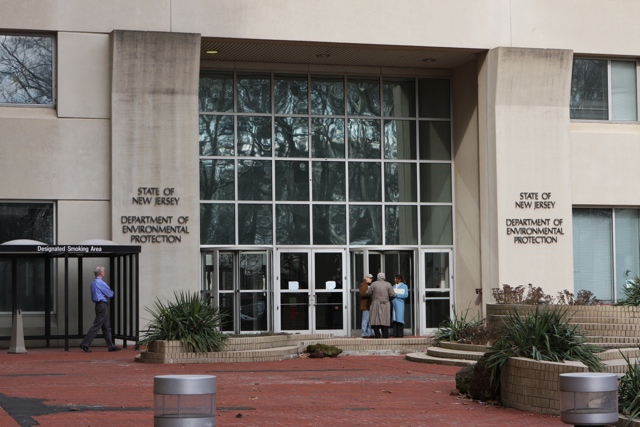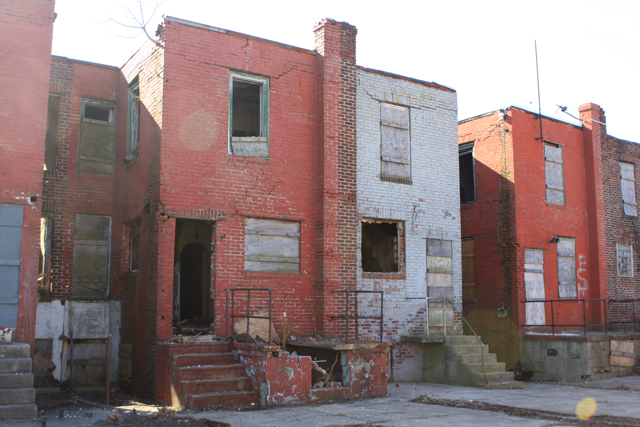DEP Involved in Corruption Scandal

DEP Headquarters, Trenton, NJ
NEW JERSEY ENVIRONMENTAL AGENCY AT HEART OF BRIBERY SCANDAL – New Rules Needed to Ban “Pay-to-Play” and Protect Staff from Strong-Arm Tactics
Washington, DC – Last week’s indictment of 44 people, including several New Jersey officials and two state legislators, underscores that “pay-to-play” is alive and well in the Garden State, especially within its Department of Environmental Protection , according Public Employees for Environmental Responsibility (PEER). Today PEER proposed new rules to end the closed door dealings within DEP that fuel corrupt practices and put its professional staff in an untenable position.
To facilitate development projects, state legislators pressure DEP to improperly approve permits, sign-off on incomplete clean-ups and shelve enforcement actions. Typically, legislators deliver their messages to the DEP Commissioner or the Assistant Commissioners, who in turn direct staff. As one of the indicted lawmakers, state Rep. Daniel Van Pelt, who sits on the committee overseeing DEP, bragged to the FBI confidential informant, he knows the “right guys” who “work the channels”.
“The back channels into DEP need to be shut down” stated PEER Executive Director Jeff Ruch. “As long as DEP does its business behind closed doors, corruption will continue to blossom.”
Today PEER is proposing transparency rules for DEP that are virtually identical to ones which the agency rejected when PEER first proposed them in 2007. These rules would provide:
- Notice of Meetings. DEP convenes closed-door meetings with lobbyists, legislators and other insiders with no public attendance or publication of meeting agendas. The agency defends this secrecy as a matter of executive privilege and the deliberative process privilege;
- Publication of Top Officials Calendars. The DEP Commissioner and top deputies routinely make decisions on enforcement and other pollution control policies in meetings with legislators and corporate executives, often from the same companies charged with violations. DEP shields appointment calendars to protect the privacy interests of attendees; and
- Repeal Gag Orders Forbidding Staff from Talking to Media and Public. Under current DEP rules, agency scientists and other specialists are barred from speaking without prior approval from the agency Press Office. DEP says this is needed to enforce the chain-of-command.
“A big problem in New Jersey DEP is that the professional staff has little recourse when confronting management orders to less than faithfully execute the law,” Ruch added, noting that the state’s whistleblower law does not protect employee disclosures about threats to public health, manipulation of science, mismanagement or ethics violations. “Sunlight is the best hope for deterring sleazy deals.”
Political influence over DEP is now so deep that it is an accepted fact of life. For example, in a July 14, 2009 letter, DEP Acting Assistant Commissioner Scott Brubaker explained why he was setting aside water anti-pollution rules because legislators had introduce a bill to bully DEP to bend over for a favored project:
“The Department is also under pressure from the development community, which fears that the Department will unilaterally remove sewer service areas. Recently, legislation has been introduced that would extend the submission deadline. Together these added burdens would preclude the Department from adopting any new or updated wastewater management plan for the foreseeable future. Any Department effort to withdraw sewer service areas would encourage this legislation.”
“So long as DEP succumbs to political pressure, it invites that pressure,” Ruch concluded.
###
Examine the DEP role in latest bribery scandal
View the DEP letter acknowledging political bullying
